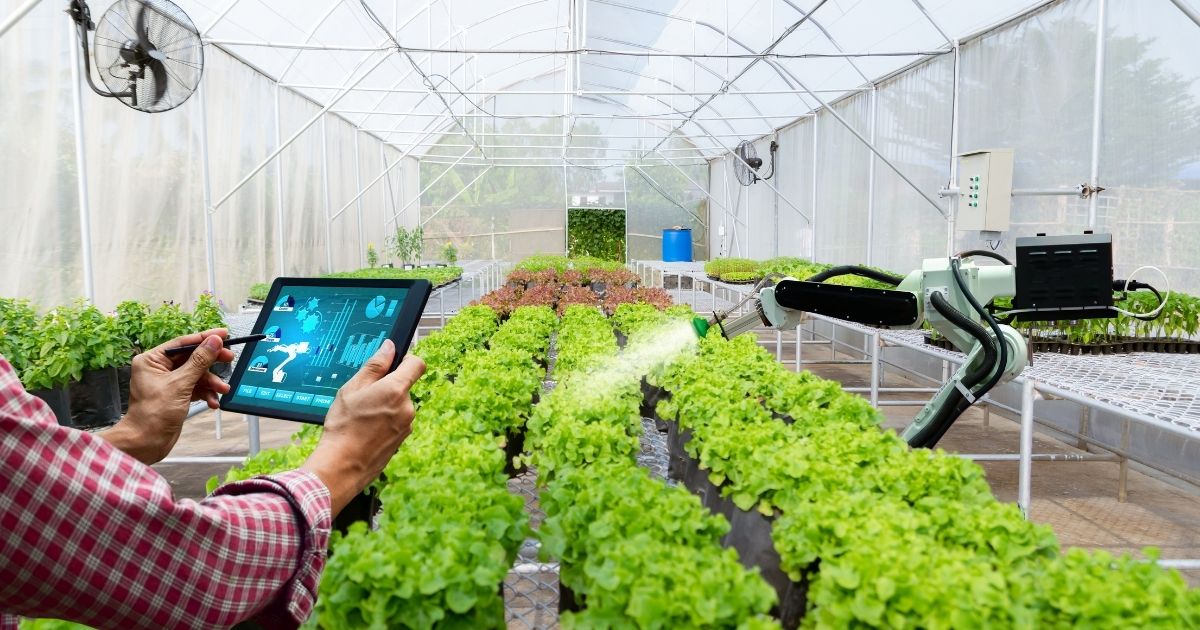- Who We Are
- What We Do
- Success Stories
- Careers
- News & Events
- Contact us

As we get deeper into the digital age, more industries are hopping in and integrating technology in basic operations, and for a good reason. With technology properly embedded in our systems, businesses are starting to reap the benefits of their own technological approaches, especially in the agricultural industry.
In the agricultural industry, many farmers and businesses struggle as the population and demands continue to grow. Some of the concerns of farmers are that there is limited availability of natural resources and a sudden shift in the agriculture workforce as labour has declined. As a result, farmers have started adopting internet connectivity solutions or IoT to reduce manual labour and forecast production.
How IoT Helps Farmers
IoT solutions help farmers in a plethora of ways—from ensuring farmers that they’re aware of their supply-demand gap to ensuring high yields, profitability, and environmental protection.
Although this seems like a new concept to most, the IoT technology approach maximises resources to boost the production of raw materials and reduce operational costs, which is called precision agriculture.
For IoT to work, agriculture technology uses specialised products and equipment, wireless connectivity, software and other IT services. That’s why you must work with a credible IT team that can help you set up an IoT for your farm or business.
Why Should Farmers Start Integrating IoT
Smart farming encourages farmers to reduce their waste and enhance productivity, maximising their resources, such as electricity and water. With this tech approach, farming solutions are taken to the next level, allowing farmers to create a system to help monitor their crop field and automate their irrigation system without manual labour.
Besides that, farmers can monitor the different conditions in various locations, allowing them to make quick decisions based on the data they receive. Data is collected through integrated smart agriculture sensors, such as sensors, control systems, autonomous vehicles, variable rate technology, and more. These devices are beneficial as they can track efficiency and performance and foresee production output for better distribution.
What IoT Can I Use for Farming?
Agriculture Drones: The great thing about drones is that they’re both ground- and aerial-based, allowing farmers to get and check crop health assessment, irrigation, crop monitoring, planting, field analysis, and more;
Livestock Tracking and Geofencing: Thanks to wireless IoT applications, farmers can easily collect data regarding the location, health, and well-being of their cattle;
Smart Greenhouses: IoT helps control smart greenhouses through climate control and reduce the need for manual intervention;
Predictive Analytics: Crop prediction is critical as it helps farmers create actionable plans for production, storage, marketing, and risk solutions. Thankfully, IoT can help predict production rates to help increase or manage production.
The Bottom Line: Utilising IoT Systems Can Help Farmers and the Whole Agricultural Businesses
As the world changes swiftly, it’s only right to adapt to the ever-changing systems. And with that, the best way to utilise your natural resources is with a proper system—IoT.
IoT provides farmers with data that help predict and control their crops and cattle, allowing them to continue operations in a cost-effective way that can give you high returns. As this starts to develop, it’s only right that you take this opportunity to reap the benefits of IoT.
How Can We Help You?
Informatics is a leading custom software development company that also focuses on infrastructure solutions and services by utilising all the years of experience and knowledge we’ve acquired in the industry.
If you want to integrate IoT into your business’s production strategy, reach out to us today!
Written by Hiran Wickramasinghe
